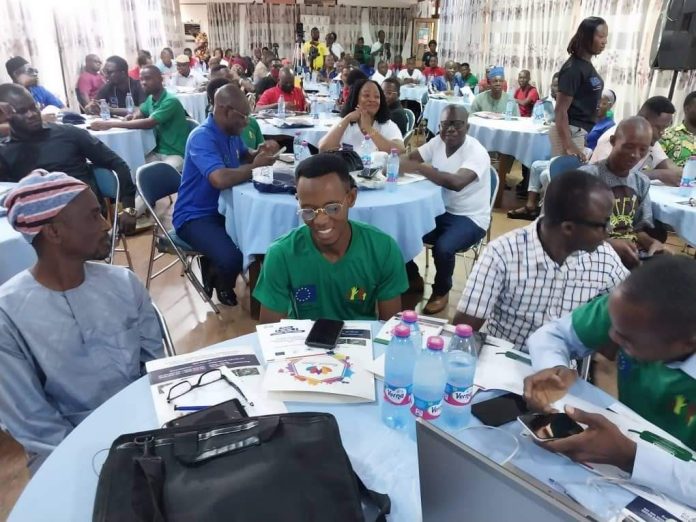As part of Ghana’s efforts under the National Framework for Preventing and Containing Violent Extremism (NAFPCVET) to create awareness, sensitize and educate citizens on the threats of Violent Extremism, the National Commission for Civic Education (NCCE) with support from the European Union held a media Advocacy training session dubbed; “The Role of The Media in Preventing and Containing Violent Extremism” at the Radach Lodge and Conference Centre, Tamale in the Northern Region of 25th and 26th April, 2023.
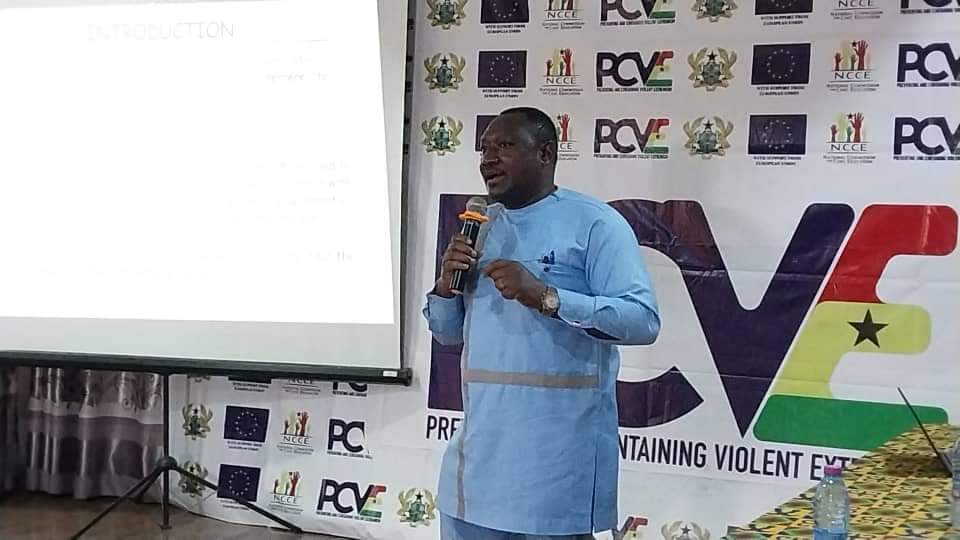
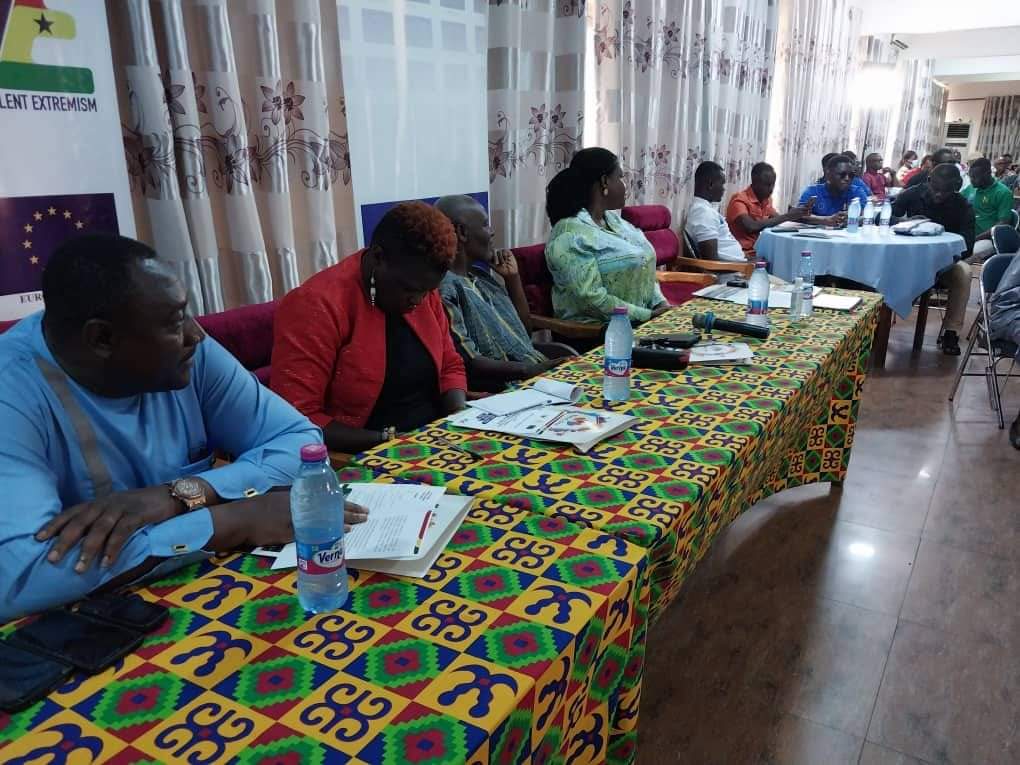
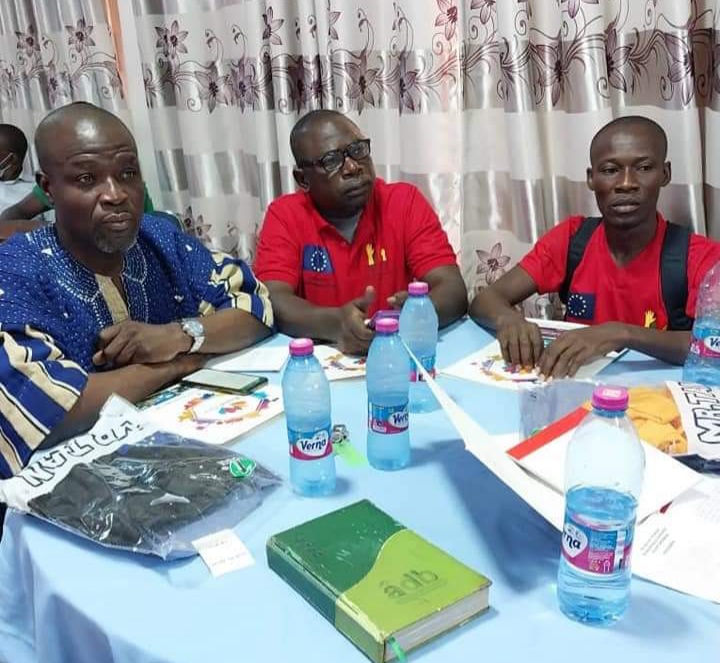
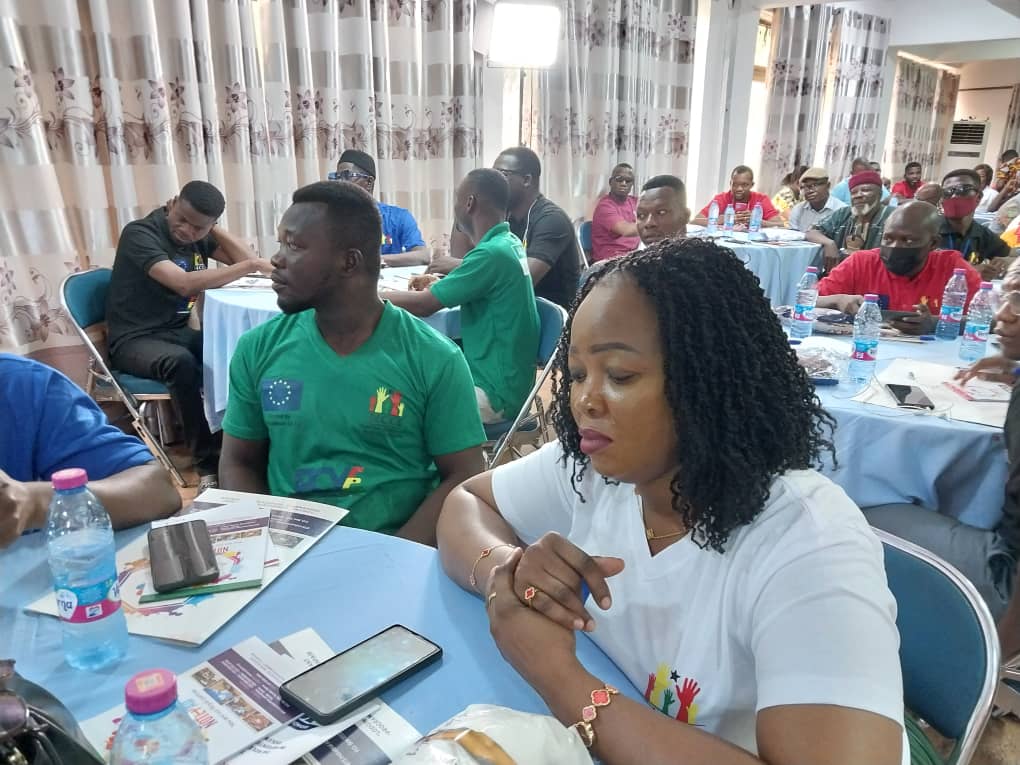
The European Union funded “Preventing and Containing Violent Extremism” training is intended to improve the knowledge and strengthen the capacities of media professionals for effective aganda- setting, reporting and publicity of “Preventing and Containing Violent Extremism” activities throughout the country.
This will make citizens more security conscious and encourage the youth “at risk” not to fall prey to violent extremists.
The Media Advocacy Workshop trained media practitioners comprising editors, Senior journalists, and producers in the 5 Northern and 3 adjoining regions.
Also participants have be empowered to be advocates, educators and ambassadors of Violent Extremism.
In her opening remarks the Chairperson of the NCCE Madam Kathleen Addy said the project of prevention and containing violence extremism is very necessary because the Media through its voice and channels has a positive role in disbursement of information to the public
She also said the execution of the project has been in line since December 2022, which the Media is a key stakeholder.
Madam Kathleen Addy indicated that, the advocacy program is to undertake interventions that ensure that people in these regions and communities have enough community resilience to be able to resist what we now know to be a real terrorist threat that the country faces.
The Chairperson of NCCE added that, terrorist threat is even made more serious by the fact that there are so many factors in the country that make us even more vulnerable to terrorist threats hence when it comes to reporting issues of prevention and containing violence extremism how the issue is reported is very important and key to how the issue will be resolved.
She adviced Media participants at the workshop to be very circumspect in their reportage to ensure peace and unity in the country.
Madam Kathleen Addy further said the media should consider the volatile nature of the insecurity in the Northern sector in terms of conflicts of war and chieftainy disputes, political disputes and the upcoming elections which raises tension.
She stated that the media holds a unique role in how it reports Issues concerning terrorist threats.
Other Resource persons at the training workshop including former Ambassador to Namibia Alhaji Abdul Rahman Haruna Atta, Dr Baba Sayuti of the Ministry of National Security and others.
The NCCE with support from the European Union is undertaking an 18-month project dubbed; ‘Preventing and Containing Violent Extremism (PCVE) in Ghana.’
The Commission among other activities under the ; ‘Preventing and Containing Violent Extremism (PCVE) in Ghana’ Project is training media personnel as part of measures to prevent violent extremism in Ghana.
The ‘Preventing and Containing Violent Extremism (PCVE) in Ghana’ is a crisis response project in the wake of the fast spread of violent extremist activities and terrorist attacks in the Sahel where countries including, Burkina Faso and Mali have experienced coup d’états.
The NCCE is concerned about these developments because of the likely spill-over effects these developments can have on the northernmost border communities of Ghana.
As a result, under the PCVE Project, the NCCE, policymakers, and development partners have repositioned themselves to actively engage citizens who may be affected by the activities of violent extremists.
The project is targeting eight (8) border regions in Ghana with the aim of ‘Strengthening state actors (governance, security, media) and non-state actors at the national and community level in the prevention and fight against violent extremism and also identify citizens who may be at risk and prevent them from joining violent or criminal groups.
Source: nkilgifmonline.com

